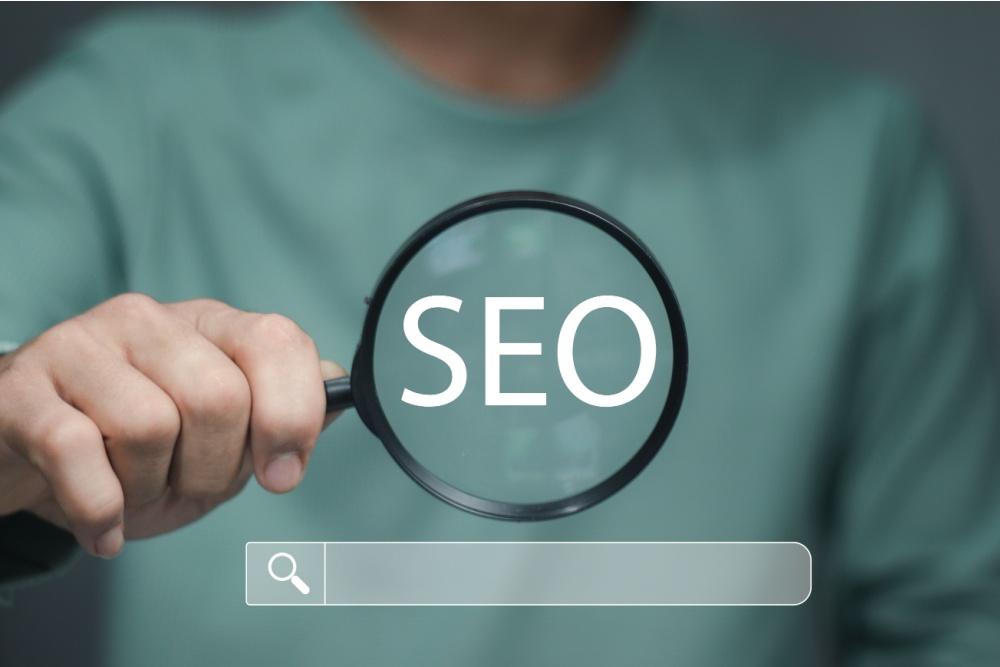Whether you’re a startup or an established business, SEO marketing is a term you might have heard about as you dabble with setting up a website or social media account. But what is SEO in marketing and why is it important for boosting your online presence?
SEO or search engine optimisation is improving your website’s visibility in search engine results pages (SERPs). While Google is not the only search engine, over 90% of searches happen on it. It’s crucial for businesses to implement effective SEO strategies so that potential customers can find them when they browse the web.
This guide will break down the basics of SEO and provide tips to help your website get more eyes… and clicks!
What is SEO in Digital Marketing?
SEO stands for search engine optimisation. It’s part of a broader digital marketing strategy that complements other tactics like content marketing, social media marketing and paid advertising. SEO is unique in that it focuses on organic traffic.
What does that mean? When someone makes a search query on Google, they get a series of results that are relevant to what they typed. These are called search engine results pages or SERPs. A well-optimised website contains related content that will rank higher on a search engine results page.
The goal of SEO marketing is to push your website to the top of the SERPs. In short, the higher your site ranks, the more visible it becomes to users. 49% of consumers use Google when considering their next purchase. By optimising your website, you make it easier for potential consumers to find your products or services organically—meaning, without the use of paid ads.

Why Optimise Your Website?
Websites that rank higher on search engines are perceived as more reliable sources of information. When your website is optimised, Google deems it provides valuable, useful and trustworthy content that answers the search query. Why is that important and how will it benefit you?
Search intent is key. When businesses align their content with what users are actively seeking using relevant keywords, they attract visitors who are already interested in their products and services. These users are more likely to convert into actual purchases, and therefore drive sales. Higher visibility in SERPs and increased organic traffic ultimately benefit your bottom line and profitability.
How Do Search Engines Work?
Now that we know why you should optimise your website, let’s dive deeper into how search engines actually work. This will help us understand why certain SEO strategies are more effective than others.
Basically, search engines sort information. They use automated bots called web crawlers to to discover new and updated web pages. These bots navigate the internet by following links from one page to another, constantly seeking fresh content.
Once a page is crawled, it moves to the indexing stage. Here, Google analyzes the content of the page—text, images and metadata—to categorize it accurately. This indexed information forms a massive database that Google references when users perform searches. Business owners should focus on optimising their content to improve their chances of being indexed favorably.
Finally, Google’s algorithms determine which indexed pages appear in search results for specific queries. Many factors influence ranking. By tailoring the SEO strategy to how Google works, business owners can better optimise their websites for improved visibility and sales.
Types of SEO Marketing
When people ask what is SEO marketing or just SEO in general, there are three ways you can approach this:

1. On-Page SEO
On-page SEO refers to a website’s content and how it’s made. Search engines are looking for content that is significant to the keyword, addresses search intent and offers credible and authoritative information. The elements of on-page SEO include:
- Keyword Optimisation: Strategically placing keywords in your content
- Metatags: Creating compelling titles and descriptions that accurately reflect your content
- Content Quality: Producing high-quality, informative and engaging content
- URL Structure: Using clear and concise URLs with keywords
- Header Tags: Structuring your content with appropriate header tags (H1, H2, etc.) to improve readability and SEO
2. Off-Page SEO
Off-page SEO focuses on building external links to your website from other reputable sources. This includes:
- Link Building: Acquiring high-quality backlinks from reliable websites
- Social Media Marketing: Promoting content on social media
- Guest Posting: Writing guest blogs on other websites to gain exposure and backlinks
- Local SEO: Optimising your website for local search results if your business has a physical location

3. Technical SEO
As the name implies, technical SEO refers to how your website is built. It refers to the following backend components:
- Website Speed: Ensuring your website loads quickly to improve user experience
- Mobile-Friendliness: Making your website easy to use on mobile devices
- XML Site Map: Creating and maintaining a site map which Google crawls and indexes
- Robots.txt: Using a robots.txt file to instruct search engines which pages to crawl and which to avoid
- HTTPS: Securing your website
How to Optimise Your Website for Search
Improving SEO for businesses entails implementing a variety of strategies for all three types of SEO—on-page, off-page and technical. Here are some tactics to help you climb the SERPs:

Content is King
When considering what is SEO in marketing, optimising content is often the first step. On-page SEO involves making your content search engine-friendly while still providing value to the reader. Below are ways you can do that effectively:
- Keyword Research and Use: Understand why people are searching for a particular keyword. Tools like Google Keyword Planner, SEMrush, and Ahrefs can help you discover keywords that have a good balance between search volume and competition.
- Title Tags and Meta Descriptions: These are the snippets of text that appear in search results. Make sure they are compelling and include your target keywords.
- Header Tags: Use these to structure your content and make it more readable.
- URL Structure: Keep URLs short, descriptive and keyword-rich.
- Internal Linking: Link to other pages on your site.
Building Authority and Trust
In addition to providing meaningful content, there’s another way to build authority and trustworthiness on your website. Here are off-page techniques you can use to prove to Google that you’re a legitimate business and expert in your field:
- Link Building: Acquire high-quality backlinks.
- Directory Listings: Create a complete Google My Business profile with consistent Name, Address, Phone (NAP) information to optimise for local searches.

Seamless User Experience
As for technical SEO, always keep user experience in mind. 40% of users will leave a site if it takes more than three seconds to load, so your website must be ready for less than that time. A website with many technical issues leaves a bad first impression and may cost you potential customers. Here’s how to maintain the integrity of your technical SEO:
- Load Times: Google prioritises fast-loading sites. Use tools like Google PageSpeed Insights to identify areas for improvement.
- Mobile-Friendliness: Check for mobile responsiveness.
- Crawl Rate: Create an XML site map to help Google understand your site’s structure.
- Web Security: Ensure secure connections with an SSL certificate for safer browsing.
The Best Strategy: Hire a Professional SEO Agency
With the prevalence of the internet and all things digital, it’s not enough to just have a website. When optimised, a website can be an indispensable tool to market your business online. But as we’ve seen, optimising a website is complex and highly technical. When tackling the question of what is SEO marketing, business owners often forget the most fundamental aspect; that SEO is not a one-time task. Search engines are continually evolving and so must your strategies.
Here at SEO Services, we use data-driven techniques to enhance your website’s visibility so you can attract more customers who are actively searching for your products or services. Partner with us to unlock the full potential of your business and watch as organic traffic converts into sales.
